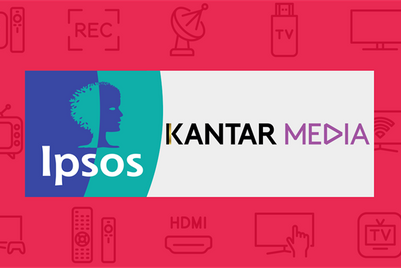
Rather than extensive questionnaires and doorstop reports, Ipsos is reducing questionnaire length and streamlining its processes to not only provide faster turnaround times but also help its people focus on what matters most.
"Ipsos is in the process of transforming from a kind of traditional research company into a new research player, which means not only that we can address the issues in the traditional ways, but also we can work very closely with the clients to address their issues faster," Liu told Campaign Asia-Pacific in one of his few recent media interviews. "We are investing a lot of money in trying to simplify and also improve our offers."
Some of the transformation work focuses on changing longtime habits. "We're limiting questionnaire time to 30 minutes so that our respondents can give us more accurate answers, and we can deliver more accurate results to our clients," Liu said. "It's also easier for us to manage the fieldwork, and gives our researchers, the client-services people, more time to spend with their clients, talking to the clients and really understanding their business issues."
Ipsos has reduced turnaround times and plans to reduce them further, according to Liu. "For example, in advertising research, in the past we needed four weeks to do copy testing," Liu said. "Now we are at two weeks, and we want to shorten to one week. We want to react faster, and this is one of the reasons we are simplifying our offer, our solutions."
More importantly, Liu stressed, Ipsos understands the pressures that clients are under and is placing more emphasis on actionable conclusions and recommendations, rather than just voluminous data. Reducing the size of questionnaires is not just about making life easier for Ipsos, "it’s also about simplifying the life of our clients", he said. "So for example, in the past, we provided 200-page Powerpoint presentations. Now we are trying to give them a very simple dashboard. So it can be easy for the key decision-makers to very quickly understand, where is the business issue, and what kind of decision can I make."
As for enhancements on the digital front, Liu pointed to the addition of social-listening capabilities, as well as a push to develop digital data-collection mechanisms, including online-community tools and an app for panelists.
 Yesterday, for example, Ipsos API announced the launch of Brand Shout (left), an app the the company claimed captures "in-the-moment" reactions to ads and brand experiences before they are "post-rationalized". Ipsos said the app allows brands to optimize touchpoints by understanding how consumers interact with each one, plan media more effectively by understanding whether each medium generates the desired response and even respond to competitor initiatives by learning which ones are impacting the brand.
Yesterday, for example, Ipsos API announced the launch of Brand Shout (left), an app the the company claimed captures "in-the-moment" reactions to ads and brand experiences before they are "post-rationalized". Ipsos said the app allows brands to optimize touchpoints by understanding how consumers interact with each one, plan media more effectively by understanding whether each medium generates the desired response and even respond to competitor initiatives by learning which ones are impacting the brand.
Asked whether the proliferation of 'big data' threatens a research provider such as Ipsos by giving marketers more direct access to market feedback, Liu argued that skilled researchers will always have a niche. "We believe our core competency as a research firm is to help our clients design research, and to analyze the data, and to integrate the data and give the business suggestions to our clients," Liu said. "We are not against the idea of using big data. For us, it's just a different source of data collection."
Overall, the changes Liu outlined are in line with the practices of newer research agencies centred on "short, fast, focused and always on" market reseach, which Ipsos now has to compete against.
It's unclear how well the company's transformation efforts are paying off thus far. Globally, Ipsos' most recent quarterly report, issued in April, showed a 5.3 per cent drop in revenue on a year-over-year basis. However, Asia-Pacific revenues dropped 9.9 per cent—the largest drop among the company's four geographic units.
Changes to where the company records revenue for global accounts explain much of the drop, according to Liu, who maintained that second-quarter results will show that the Asia-Pacific region is on track.
Liu alluded to a need to "reengineer" the company's China operations for greater efficiency, but pointed to Japan as a particular bright spot as of late.
"Japanese clients are spending more money, and they are going more aggressively abroad than before," he said. Ipsos is also doing very well in the "gateway" markets of Singapore and Hong Kong, where the Synovate merger has resulted in much stronger teams, he said.
In terms of sectors, automotive, finance and FMCG are strong, according to Liu, who also cited a good mix of multinational and emerging-market clients as cause for optimism.
"In Asia-Pacific, if you pick 50 clients, maybe 25 are multinationals," he said. "But also, because we have many emerging markets, we are also working very closely with some emerging clients, like Huawei and China Mobile in China, and even in Thailand and the Philippines, some emerging regional clients, such as Jollybee."





.jpg&h=334&w=500&q=100&v=20250320&c=1)
.jpg&h=334&w=500&q=100&v=20250320&c=1)

.jpg&h=334&w=500&q=100&v=20250320&c=1)


.jpg&h=334&w=500&q=100&v=20250320&c=1)






.png&h=268&w=401&q=100&v=20250320&c=1)
.jpg&h=268&w=401&q=100&v=20250320&c=1)